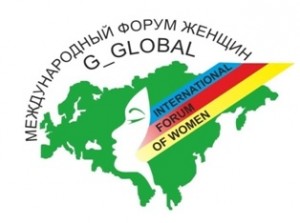 ASTANA – The international women’s forum, “G-Global – the Role of Women in the New Economy,” will be held within the Astana Economic Forum (AEF) on May 21-22.
ASTANA – The international women’s forum, “G-Global – the Role of Women in the New Economy,” will be held within the Astana Economic Forum (AEF) on May 21-22.
The programme of the forum includes two sessions: “Leadership of Women in Political and Economic Life” and “The Role of Central Asian and Afghan Women in the Development of the New Economy.” Within the forum, the Association of Businesswomen of Kazakhstan will organise master classes by world experts and leaders of the women’s movement and training sessions by recognised business coaches.
Confirmed forum participants include Afghan Minister of Women’s Affairs Husn Banu Ghazanfar, Member of the Zhogorgy Kenesh (Parliament) of the Kyrgyz Republic and Chair of the Committee on Parliamentary Procedure and Ethics Ainuru Altybayeva, Member of Legislative Chamber of the the Oliy Majlis (Parliament) of Uzbekistan Dzhamiliya Niyazova, Member of the Majlis Namoyandogan of Tajikistan Sabokhat Mukumova, Member of the Mejlis of Turkmenistan Geren Kazakova, President of the World Women Inventors and Entrepreneur’s Association Mi-Young Han and Honourary Consul of Kazakhstan in Ukraine Halyna Maslyuk.
Held annually since 2008, the AEF gathers world leaders, experts and public and business representatives to find solutions to current economic and social challenges. Since 2012, the Association of Businesswomen of Kazakhstan has held women’s forums within the larger AEF to discuss women’s issues and important public issues relating to quality of life.
The women’s forums were inspired by Kazakh President Nursultan Nazarbayev’s state-of-the-nation addresses, which emphasise the role of women in the development of society, the importance of small and medium-sized enterprises and the importance of women’s entrepreneurship for successful economic development.
The World Economic Forum’s Global Gender Gap Report of 2013 ranked Kazakhstan 32nd out of 136 countries in terms of gender equality. Recently, legislative and social initiatives have been put into place to increase women’s representation in decision-making processes. The country is in the midst of a 10-year plan to see women hold 30 percent of all decision-making positions in government by 2016. The country has already achieved most of its Millennium Development Goals with regard to gender equality, particularly in access to education.
